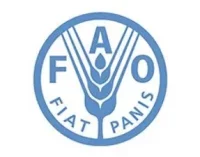
2301224
Disaster damage and loss assessment specialist
Job advertisement : Apr 28/2023
Publication cancellation date : May 12, 2023, 9:59:00 PM
Organizational Unit: FLDOM
Job type : Temporary work
Requirement Type: PSA ( Personal Service Agreements )
Grade Level: N / A
Main location : Dominican Republic-Santo Domingo
Duration: 4 calendar months ( 60 effective days )
Position Number: N / A
_ FAO seeks to ensure gender, geographic and linguistic diversity among its staff and its international consultants, in order to serve the Member States of the Organization in the best possible way in all regions.
_
- FAO is committed to achieving diversity in its workforce in terms of sex, nationality, origin and culture.
- Women, nationals of under-represented or under-represented Member States and persons with disabilities with the necessary qualifications are encouraged to submit their applications.
- All persons working for FAO must comply with the highest standards of professional integrity and conduct and uphold FAO’s values.
- FAO, as a specialized agency of the United Nations, applies a zero tolerance policy for conduct incompatible with its statute, objectives and mandate, in particular sexual exploitation and abuse, sexual harassment, abuse of authority and discrimination.
- All selected candidates will undergo rigorous reference and background checks.
- All requests will be treated with the strictest confidentiality.
Organizational framework
The Dominican Republic is listed as one of the countries in the world with the highest rate of disaster risks given its high exposure to extreme hydrometeorological events and other types of threats, high vulnerability to its potential effects and limited ability to manage the different stages of evolution of a disaster.
In the country, agriculture constitutes a sector of the economy that experiences considerable losses caused by tropical storms, floods, hurricanes and droughts. Other losses have been associated with pests and diseases that affect crops, livestock and forestry.
However, knowing that such losses occur and the adverse effects they cause on the economy and food security, the country has limited capacities to assess the effects of disasters on agriculture, provide a reliable evidence base for risk management and resilience building, as well as to monitor the achievement of national risk management goals associated with the Sendai framework and the SDGs.
The situation that was generated after Hurricane Fiona passed through the territory of the Dominican Republic has served as a stage for FAO, propose to the Dominican Government to carry out a diagnosis of technical and institutional capacities to systematically assess disaster damage and loss in the agricultural sector, including the crop production, livestock, forestry subsectors, aquaculture and fishing. Said diagnosis would serve as the basis for further development and / or improvement of a national system for evaluating disaster damage and loss in agriculture by using a holistic methodology adaptable to the national context and that it considers the specificities of each of the five indicated subsectors, among other considerations.
In order to produce this diagnosis, FAO seeks to contract services from a/a specialist in evaluation of damages and losses in agriculture due to disasters with the capacity and experience required to carry out the necessary actions for its elaboration.
Hierarchical dependency
The contracted specialist will report directly to the FAO Representative in the Dominican Republic; It will be under the general supervision of the Assistant Program Representative and will work in permanent collaboration with the representative’s risk management manager.
Field of specialization
The/The specialist will aim to carry out consultations to provide an overview of current practices in the country in terms of evaluating the impact of disasters due to damage and loss in the sector agricultural. Consultations should focus on exploring, documenting, and analyzing current institutional arrangements; related roles and responsibilities of various actors; existing structures for both regular data collection and data collection of post-disaster damage and loss throughout the agricultural field including the agricultural, livestock, forestry subsectors, aquaculture and fishing; existing capacity for the evaluation of damage and loss in agriculture; use of existing technologies, among other aspects.
The expected result is a report that, based on a participatory process, provides and justifies actionable strategic recommendations ( institutional, structural and technical ) for development and / or improvement of a system that allows collecting, analyzing and disseminating reliable data on the impact of the disaster in the agricultural sector.
Tasks and responsibilities
The ( the ) specialist will be in charge of the following tasks and responsibilities: – Identify key institutional actors to consult from the public spheres, academic and private that generate relevant agricultural data to assess damage and loss due to disasters. – Collect basic background of the agricultural sector ( general characteristics, participation GDP trade balance, role in employment, food security, others ) – Identify main emergencies that have affected the different agricultural items in the last 20 years. – Know the FAO methodology to assess damage and loss in agriculture due to disasters, of the existence of other methodologies for use in the country or known as the basis for establishing comparisons that are useful to propose the development and / or improvements of a reliable system.- Accompany FAO in consultations that may be in format interviews with key informants, focus groups, workshops or other group modalities. – Accompany the holding of a national workshop with all the actors, enabling a joint discussion on gaps, barriers, and possible strategies to assemble a national system that allows evaluating disaster damage and loss in agriculture. – Inquire about the current state in the country of collection, systematization, analysis and reporting of data related to damage and loss in agriculture. – Meet actors with mandate / interest/capacity to house a national system for evaluating disaster damage and loss in agriculture ( crops, livestock, forests, aquaculture, fisheries ).- Know current institutional arrangements and more viable options for the future to set up a national system considering that the country is committed to reporting disaster damage and loss in agriculture. – Identify existing capacities and leadership to promote the establishment of a national damage and loss assessment system – Identify necessary short and long-term statistical interventions to establish a national system for evaluating damage and loss in agriculture. – Identify the current biggest barrier to progress in establishing a national system for evaluating damage and loss in agriculture. – Identify existing capacities and leadership to promote the establishment of a national damage and loss assessment system – Identify necessary short and long-term statistical interventions to establish a national system for evaluating damage and loss in agriculture. – Identify the current biggest barrier to progress in establishing a national system for evaluating damage and loss in agriculture. – Identify existing capacities and leadership to promote the establishment of a national damage and loss assessment system – Identify necessary short and long-term statistical interventions to establish a national system for evaluating damage and loss in agriculture. – Identify the current biggest barrier to progress in establishing a national system for evaluating damage and loss in agriculture. – Identify the current biggest barrier to progress in establishing a national system for evaluating damage and loss in agriculture. – Identify the current biggest barrier to progress in establishing a national system for evaluating damage and loss in agriculture.
THE CANDIDATES WILL BE EVALUED IN ARRANGE TO THE FOLLOWING CRITERIA:
Minimum requirements
– University Degree in the field of agriculture, economics or environmental sciences, with a degree of specialty in disaster risk management. – Minimum 5 years of experience related to disaster risk management, preferably in the agricultural field. – Practical knowledge of Spanish ( Level C ). – National of the Dominican Republic or legal resident in the country.
FAO core competencies
– Results-based approach – Teamwork – Communication – Establishing effective relationships – Knowledge sharing and continuous improvement
Technical / functional skills– Proven experience in carrying out studies similar to the one indicated. – Extensive knowledge of the national context related to the agricultural sector. – Extensive knowledge of the national context regarding the prevention system, disaster mitigation and response. – Skills associated with the statistical field, data collection, analysis and systematization, and in the preparation of technical reports – Experience in facilitating group techniques for gathering information, generating knowledge and building consensus. – Knowledge of methodologies for evaluating disaster damage and loss. – Proven experience in conducting disaster damage and loss assessment. – Familiarity with technical assistance and field projects from FAO / United Nations, desirable.- Ability to work under pressure and against tight deadlines. – Management of application and Internet programs
Selection criteria
– Only pre-selected applicants who will go to the Panel interview stage will be contacted. – Among the applications received, a preselection will be made based on the compatibility of professional profiles and the required competences. – The person with the best performance in the interview will be the one who is selected. – Applicants may be considered for other open positions at FAO. – This position is open only to nationals of the Dominican Republic or legal residents in the country.
It is noted that all candidates should adhere to the Organization’s values of commitment to FAO, respect for all and integrity and transparency.
ADDITIONAL INFORMATION
- FAO does not charge fees at any stage of the recruitment process ( application, interview, processing ).
- Incomplete applications will not be taken into account. If you need help or have questions, contact: [email protected]
- Applications received after the expiration of the application deadline will not be accepted.
- We inform you that FAO will only consider academic degrees or credentials obtained from a teaching institution included in the World Database on Higher Education, which is a list maintained by the International Association of Universities ( IAU ) / UNESCO. The list can be consulted at: www.whed.net/
- For any other questions visit the FAO website on employment: http://www.fao.org/employment/home/es/.
